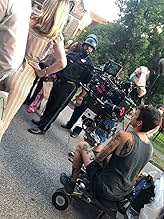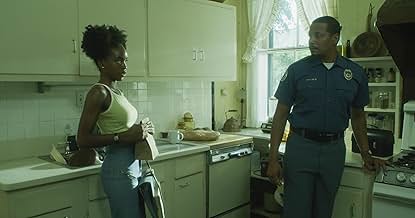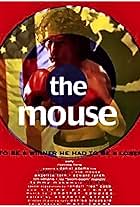In 1974, a Boston Irish cop confronts fierce social pressure after being assigned to protect black high school students as they are bused into all-white South Boston High.In 1974, a Boston Irish cop confronts fierce social pressure after being assigned to protect black high school students as they are bused into all-white South Boston High.In 1974, a Boston Irish cop confronts fierce social pressure after being assigned to protect black high school students as they are bused into all-white South Boston High.
- Awards
- 50 wins & 7 nominations total
- Director
- Writers
- All cast & crew
- Production, box office & more at IMDbPro
Featured reviews
Set in 1974 Boston, the film centers on police officer Bill Coughlin, who is tasked to protect a couple of black students as they are bussed into an all-white high school, Coughlin being also under the pressure of a local crime boss. In the same time, Wendy Robbins, a 18-year-old student and her father Lamont, are caught in the middle of some violent protests on the streets, while Kate, Bill's teenage daughter, is faced with her own racist attitude.
The Walk is a 2022 historical drama film based on true events about the 1974 Boston desegregation busing crisis. Directed by Daniel Adams from a script he co-wrote with George Powell, the film stars Justin Chatwin, Terrence Howard, Jeremy Piven, Lovie Simone and Malcolm McDowell.
The Walk is a 2022 historical drama film based on true events about the 1974 Boston desegregation busing crisis. Directed by Daniel Adams from a script he co-wrote with George Powell, the film stars Justin Chatwin, Terrence Howard, Jeremy Piven, Lovie Simone and Malcolm McDowell.
I thought the description sounded interesting and was filled with great cast members but I have to say that as the story unfolded I was stunned at the relevance and effectiveness of the storyline to what is going on in our world today. I lived through this time period and the movie makes you feel like you were actually there and feeling the rawness. It serves as an excellent piece of cinematic work. The even more spectacular part is that I have not heard of the film before today. It really is a such a gem and I think all persons, especially teenagers should watch it to gain such powerful perspective.
I think this movie was about average, despite good actors and production. For me, too much talking and unnecessary scenes made for a less interesting story... and some of the Chicago accents were annoyingly overexaggerated. I'm not sure why it had to be a period piece either (early 70s I guess), but the main theme seemed to be "How bigotry was even worse back then" which, while sometimes it serves the story or is a necessary part of it, isn't enough of story in itself to be interesting. There are thousands of them already. It may evoke viewers' emotions but it's as cheap as a girl in a horror movie looking for her dog alone in the woods at night. Yawn. Full disclosure: I didn't finish this one.
Greetings again from the darkness. This "inspired by true events" film opens with a history lesson: In 1954, in the landmark Brown v Board of Education case, the Supreme Court of the United States ruled racial segregation of public schools was unconstitutional. This was followed in 1965 with SCOTUS ruling there should be no more delays in desegregation, and another ruling by the high court in 1971 stating that busing students was appropriate in facilitating desegregation. But it took the NAACP bringing suit against Boston Public Schools before a specific court ruling in 1973 forced the city to comply by the following year. The film from writer-director Daniel Adams (THE LIGHTKEEPERS, 2009) and co-writer George Powell picks up in 1974.
Justin Chatwin ("Shameless") stars as Boston Police Officer Bill Coughlin, a born and raised "Southie", whose daughter Katie (Katie Douglas) is finishing up one school year and looking forward to her upcoming senior year of high school. Her world is rocked when her best friend receives a letter stating that she has been reassigned to another school as part of the desegregation. Reacting as a teenager would, Katie claims it's all unfair and she should get a normal senior year without having to share her school with black students. What we soon learn is that those black students feel the same way. Wendy Robbins (an excellent Lovie Simone) lives with her EMT dad (Terrence Howard), and her faith and courage and maturity aren't quite enough to overcome the emotions, but she's strong enough to follow in the steps of MLK rather than the Black Panthers.
We see that neither side wanted it handled this way. "Why do they hate us?" It's the question asked a couple of times, and goes to the heart of the cultural and racial divide in Boston at the time. Officer Coughlin is at the center of much of what happens. He's struggling with the bubbling emotions in his city, his concern for his daughter, his reassignment to protect the black kids getting bused to south Boston, and facing threats from Johnny Bunkley (Jeremy Piven), a local thug recently released from prison. Bunkley is protected by McLaughlin, the neighborhood power broker played by Malcolm McDowell. On top of all that, Coughlin considers himself fair, but wonders if he's a racist ... and wonders how exactly to define the word (a dilemma that still exists 50 years later).
The film does capture what a tumultuous time it was to be a parent, a kid, or a cop. Everyone was uneasy and looking for someone to blame and a way to maintain the status quo. Many characters are involved here, but most of the focus is on Coughlin and Katie. His challenges stem from work, home, and the neighborhood, while hers are that of a teenager feeling wronged and smothered. Some of the sub-plots work, while others are misfires. It's vital to keep in mind that the story is set in 1974 ... the first year of busing for desegregation in Boston public schools.
As powerful as the issues covered are, the film likely would have benefited from better casting, and a simplified and focused script. Mr. Piven is a fine actor, but miscast here as a street thug. Mr. Chatwin lacks the physical presence of a cop who commands respect, though his sensitive nature is a plus given his inner turmoil. Malcolm McDowell is always a treat to watch, but casting a Brit as a native Southie only exacerbated the inconsistencies many had with the accent. The film is one to watch for the history lesson, though not so much for cinematic expertise.
Opens on June 10, 2022.
Justin Chatwin ("Shameless") stars as Boston Police Officer Bill Coughlin, a born and raised "Southie", whose daughter Katie (Katie Douglas) is finishing up one school year and looking forward to her upcoming senior year of high school. Her world is rocked when her best friend receives a letter stating that she has been reassigned to another school as part of the desegregation. Reacting as a teenager would, Katie claims it's all unfair and she should get a normal senior year without having to share her school with black students. What we soon learn is that those black students feel the same way. Wendy Robbins (an excellent Lovie Simone) lives with her EMT dad (Terrence Howard), and her faith and courage and maturity aren't quite enough to overcome the emotions, but she's strong enough to follow in the steps of MLK rather than the Black Panthers.
We see that neither side wanted it handled this way. "Why do they hate us?" It's the question asked a couple of times, and goes to the heart of the cultural and racial divide in Boston at the time. Officer Coughlin is at the center of much of what happens. He's struggling with the bubbling emotions in his city, his concern for his daughter, his reassignment to protect the black kids getting bused to south Boston, and facing threats from Johnny Bunkley (Jeremy Piven), a local thug recently released from prison. Bunkley is protected by McLaughlin, the neighborhood power broker played by Malcolm McDowell. On top of all that, Coughlin considers himself fair, but wonders if he's a racist ... and wonders how exactly to define the word (a dilemma that still exists 50 years later).
The film does capture what a tumultuous time it was to be a parent, a kid, or a cop. Everyone was uneasy and looking for someone to blame and a way to maintain the status quo. Many characters are involved here, but most of the focus is on Coughlin and Katie. His challenges stem from work, home, and the neighborhood, while hers are that of a teenager feeling wronged and smothered. Some of the sub-plots work, while others are misfires. It's vital to keep in mind that the story is set in 1974 ... the first year of busing for desegregation in Boston public schools.
As powerful as the issues covered are, the film likely would have benefited from better casting, and a simplified and focused script. Mr. Piven is a fine actor, but miscast here as a street thug. Mr. Chatwin lacks the physical presence of a cop who commands respect, though his sensitive nature is a plus given his inner turmoil. Malcolm McDowell is always a treat to watch, but casting a Brit as a native Southie only exacerbated the inconsistencies many had with the accent. The film is one to watch for the history lesson, though not so much for cinematic expertise.
Opens on June 10, 2022.
I really enjoyed this movie. Being mixed with black and Mexican I can never be able to imagine what minorities had to endure during those times. It was an emotional movie. The acting was great and it had me very grateful for being able to watch it. The end did leave me with a cliffhanger.
Storyline
Did you know
- TriviaMorris Chestnut was originally set to play Lamont, but was forced to pull out of the project because of scheduling conflicts with Our Kind of People (2021). His co-star in The Best Man (1999) and good friend in real life Terrence Howard replaced him.
- How long is The Walk?Powered by Alexa
Details
- Runtime1 hour 45 minutes
- Color
Contribute to this page
Suggest an edit or add missing content







































